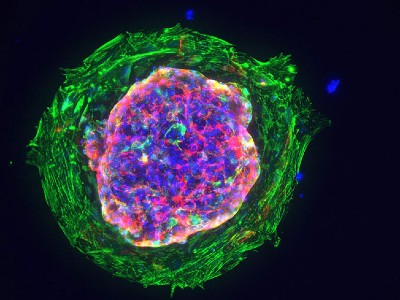Syracuse University’s BioInspired Institute announced today that it has awarded six seed grants to 12 faculty members to advance interdisciplinary, collaborative research in materials and living systems. Seed grants provide funding for innovative ideas, producing data that can be used in future funding applications to prove that a new concept or approach is promising and attract additional research funds from outside the University.
“We designed the program to advance the mission of the BioInspired Institute: promoting world-class research,” says BioInspired Institute Director M. Lisa Manning. “Our goal is to jump-start exciting ideas that result from faculty collaborating across disciplines.”
One of 10 cross-disciplinary research clusters identified through a faculty-led proposal development process, BioInspired is supported by Invest Syracuse. The institute includes faculty from the College of Arts and Sciences and the College of Engineering and Computer Science with collaborators from SUNY Upstate and SUNY College of Environmental Science and Forestry.
 Manning notes that the application was intentionally designed to be less time-consuming for this inaugural year, recognizing the challenges that many faculty face as a result of the COVID-19 pandemic. The goal is to fast-track promising research ideas, funding proof of concept or preliminary studies. Data generated through these studies enables faculty to submit strong grant proposals to funding organizations like the National Science Foundation and the National Institutes of Health.
Manning notes that the application was intentionally designed to be less time-consuming for this inaugural year, recognizing the challenges that many faculty face as a result of the COVID-19 pandemic. The goal is to fast-track promising research ideas, funding proof of concept or preliminary studies. Data generated through these studies enables faculty to submit strong grant proposals to funding organizations like the National Science Foundation and the National Institutes of Health.
“The proposals we received are really exciting. Each has the potential to be leveraged into high-impact research programs,” says Jay Henderson, associate director of BioInspired.
The awards of approximately $30,000 each will go to six projects:
- Samuel Herberg (principal investigator, Ophthalmology and Visual Sciences, SUNY Upstate) and Pranav Soman(co-principal investigator): Investigating the effects of localized extracellular matrix stiffening on human trabecular meshwork biopolymer hydrogels.
- Era Jain (principal investigator) and Zhen Ma (co-principal investigator): Designer microgels for generation of synthetic blastocyst mimics.
- Davoud Mozhdehi (principal investigator) and Pranav Soman (co-principal investigator): Genetically programmable and mechanically adaptive engineered living materials.
- Alison Patteson (principal investigator), Heidi Hehnly (co-principal investigator) and Jennifer Schwarz (co-principal investigator): Deciphering the role of vimentin-centrosome interactions in cell function.
- Minghao Rostami (principal investigator) and Melissa Green (co-principal investigator): An Interactive Virtual Reality System for Microfluidics and Beyond.
- Rachel Steinhardt (principal investigator) and Christian Santangelo (co-principal investigator): Strong creases, active folds: development of active matter for soft robotics.
“These projects, while early stage, all have exciting potential for important applications like fighting infectious disease, creating innovative biomaterials for medical use, creating more realistic systems for testing drug toxicity in the lab and expanding the frontier of robotics technology,” says Ramesh Raina, interim vice president for research. “We know that seed grants are an effective mechanism for building research programs that attract outside funding for innovative ideas. This program is just one way that the BioInspired Institute is doing exactly what we hoped by bringing together faculty from different disciplines and our partner institutions to spark innovative approaches to materials and living systems.”
